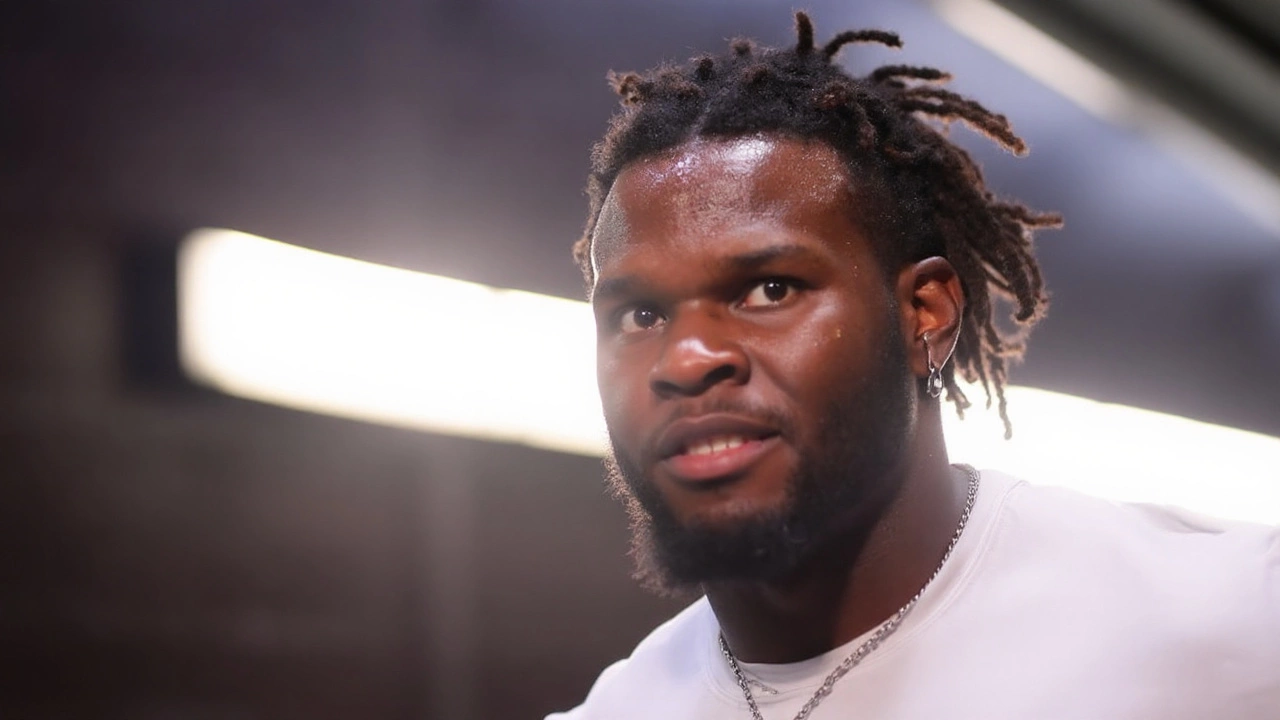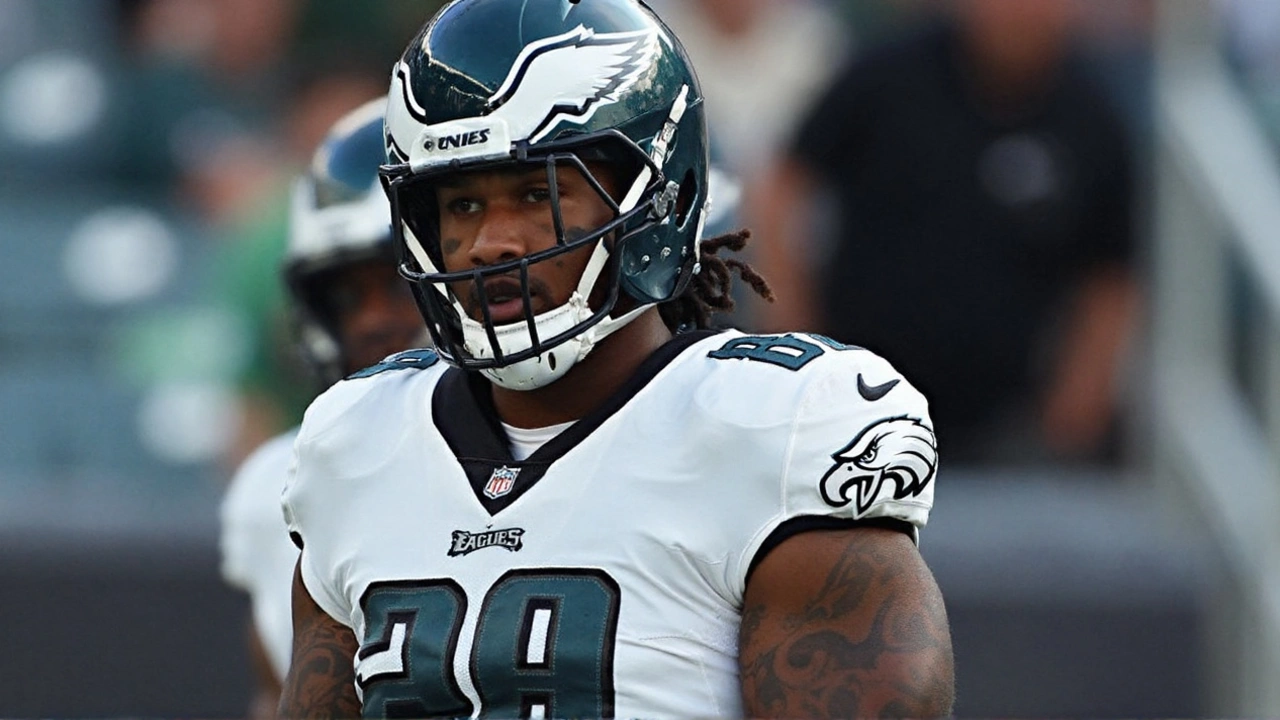Jalen Carter Ejected Six Seconds Into Eagles–Cowboys Opener After Spitting Incident
 Sep, 6 2025
Sep, 6 2025
Six seconds. That’s how fast the NFL’s season opener in Philadelphia flipped from a celebration to a flashpoint. On the first stoppage after the opening kickoff, star defensive tackle Jalen Carter was ejected for spitting at Cowboys quarterback Dak Prescott, setting off an early storm inside Lincoln Financial Field on a night meant to honor the Eagles’ recent Super Bowl title.
The ejection came during an injury timeout when Eagles special teamer Ben VanSumeren stayed down after the opening kick. While players from both teams milled around waiting for play to resume, Carter and Prescott went face-to-face. Cameras picked up the moment Carter spat, officials threw a flag for unsportsmanlike conduct, and the 24-year-old was tossed before the first snap from scrimmage. The 15-yard penalty handed Dallas a short field, and the Cowboys punched in a goal-line rushing score to cap a clinical, six-play opening drive.
What happened, who it affected, and why it mattered
There’s no way to sugarcoat the timing. Losing your Pro Bowl defensive tackle on the first sequence is a gut punch for any team, let alone one that leans on its front four to control games. Carter, the ninth overall pick in 2023, came into the night off a breakout season—4.5 sacks, 12 tackles for loss, steady double-teams—and had been hyped all month. General manager Howie Roseman spent training camp praising his dominance and how it frees edge rushers by drawing two blockers. Then, in an instant, he was gone.
Here’s how the chaotic opening minute unfolded, step by step:
- Opening kickoff: The ball sailed, contact ensued, and Eagles linebacker Ben VanSumeren stayed down, prompting medical staff and an immediate timeout.
- Players from both teams drifted near midfield. Prescott and Carter exchanged words and stepped into each other’s space.
- Cameras caught Carter spitting. Officials flagged unsportsmanlike conduct and ejected him on the spot.
- The 15-yard assessment gave Dallas favorable position. With the crowd stunned, the Cowboys marched for a short touchdown run to take an early lead.
The ripple effects were obvious. Philadelphia’s defensive rotation had to be reshuffled on the fly, with coaches asking more snaps from the remaining interior line. That alters pass-rush packages, run fits, and third-down plans scripted for Carter’s presence. It also tests discipline: early penalties and quick points can tilt a game plan, especially in a rivalry where the temperature runs hot from the coin toss.
To his credit, Carter addressed it after the final whistle. “I feel bad for just my teammates and fans out here. I’m doing it for them,” he said, calling it a mistake and promising, “It won’t happen again.” The apology came fast, but the consequences may not. Under the NFL’s conduct rules, spitting at an opponent is flagged as unsportsmanlike and can lead to fines and, in some cases, a suspension. The league office routinely reviews ejections at the start of the week, and discipline—if any—generally lands by midweek.
Then the story got messier. Additional video angles surfaced later that appeared to show Prescott first spitting in Carter’s direction moments before the altercation. Prescott downplayed it afterward, saying he was “messing” with an offensive lineman and felt the “need” to spit, a move that clearly escalated tensions. What those angles can’t do is prove intent, and that’s the crux for the league: was there provocation and, if so, does it mitigate? Expect Park Avenue to put both clips under the microscope.
On the field, Dallas made the most of the short field to jump ahead, but Philadelphia steadied. The Eagles’ defense tightened in the red zone the rest of the night, the offense found rhythm, and the home team clawed back and closed it out, 24–20. It’s the kind of result that can quiet a controversy, at least in the standings, even if questions about discipline linger in the film room.

The video, the rivalry heat, and what comes next
Rivalry games breed edge. Eagles–Cowboys week always carries extra static, and a season opener with championship pomp only amplifies it. Players are amped, rotations are fresh, and special teams collisions hit harder. All of that framed a confrontation that started during a pause intended to protect an injured player—and that’s a big reason why the sequence will stick with the league and with both locker rooms.
A few threads now run in parallel. First, the NFL’s review. Ejections are standardly reviewed by the football operations department, which checks broadcast angles and any available in-stadium footage. Spitting is specifically called out in the rule book as unsportsmanlike. Fines for that category often land in the five-figure range, and prior cases have occasionally drawn suspensions, depending on severity and context. If league investigators determine Prescott’s action contributed to the flare-up, both players could face penalties, even if only one was ejected on game night.
Second, Philadelphia’s internal calculus. Carter is a foundational piece of the Eagles’ front. His ability to collapse pockets with a single gap win is why offensive coordinators slide protection his way, and why Philadelphia builds pressure packages off his interior push. Losing him, even for just a game or a quarter, changes how the defense plays. Coaches can lean on two-gap run fits and dial back the stunts, but that softens the edge threat. That’s not theoretical—it’s what the Eagles had to do on the fly Thursday, tapping deeper into their rotational tackles and trusting the back seven to rally and tackle.
Third, the Cowboys’ side of this. Prescott’s explanation—he said he was “messing” with a lineman and needed to spit—will get parsed because the angle makes it look like the quarterback’s spit landed toward Carter’s space. Intent will be central, but optics matter. Dallas benefited immediately from the penalty, starting on a short field and punching in a 1-yard touchdown run to finish the opening series. After that, the offense sputtered enough for Philadelphia to swing the game back, but the tone had been set.
Sportsmanship will be part of the talk, too. The league cracked down on taunting and extracurriculars in recent seasons, asking officials to snuff out flashpoints before they explode. Spitting crosses a bright line for players across sports—it’s disrespectful, unhygienic, and, in football, a quick way to get tossed. Coaches preach composure during stoppages because that’s when tempers flare. The fact this happened during an injury timeout, with medical staff on the field, is going to be a sore point at 345 Park Avenue.
Inside the building, the Eagles will take the win and still grade hard. Expect coaches to use the incident as a teachable moment: rivalry, opener, national spotlight—none of it can pull a cornerstone player off the field for a preventable reason. They’ll also emphasize how the defense stabilized without its star, which matters in a long season. Depth was tested early, and it held just enough.
On the Cowboys’ side, staff will likely focus on cleaning up the aftermath and the message. Prescott is the face of the franchise, and anything that looks like baiting an opponent will get attention in Dallas and beyond. The Cowboys may face questions about how the moment was handled on the field, especially if the league doles out discipline based on the broader video review.
Then there’s fan reaction. Philadelphia’s crowd arrived to celebrate a banner and left with a narrow win and a lingering storyline. Dallas fans will point to the early call and wonder why the Eagles’ star lost his cool, while Eagles fans will point to the later clip and ask why Prescott wasn’t flagged, too. That split-screen frustration is exactly what the league tries to avoid in Week 1, when it wants the product—fast, clean, loud—to stand on its own.
From a football lens, the impact of losing a disruptive 3-tech can’t be overstated. Offenses plan protections around interior pressure; quarterbacks hate it, and coordinators run the ball away from it. Pull that anchor out, and the dominoes start falling: more one-on-ones for the guard-center, fewer double teams, wider pockets. Philadelphia’s ability to squeeze the pocket without Carter on the field is a silver lining the coaching staff can carry into film prep for Week 2.
As for Carter, the apology matters. Owning it quickly and publicly is the first step. The next steps are out of his hands: the league office will decide on fines, and any discipline would land before next weekend’s slate. Team discipline is possible, too, even if only symbolic. If there’s one thing veterans repeat in September, it’s that the margin for error is thin. Don’t give it away for free.
The schedule won’t wait. Philadelphia banked a 24–20 win that could matter down the stretch. Dallas leaves with a loss and a controversy to answer. The rematch later in the season just picked up a sub-plot, and you can be sure both sidelines will remember exactly how this one started—six seconds in, during a timeout, when a rivalry game boiled over before it ever truly began.